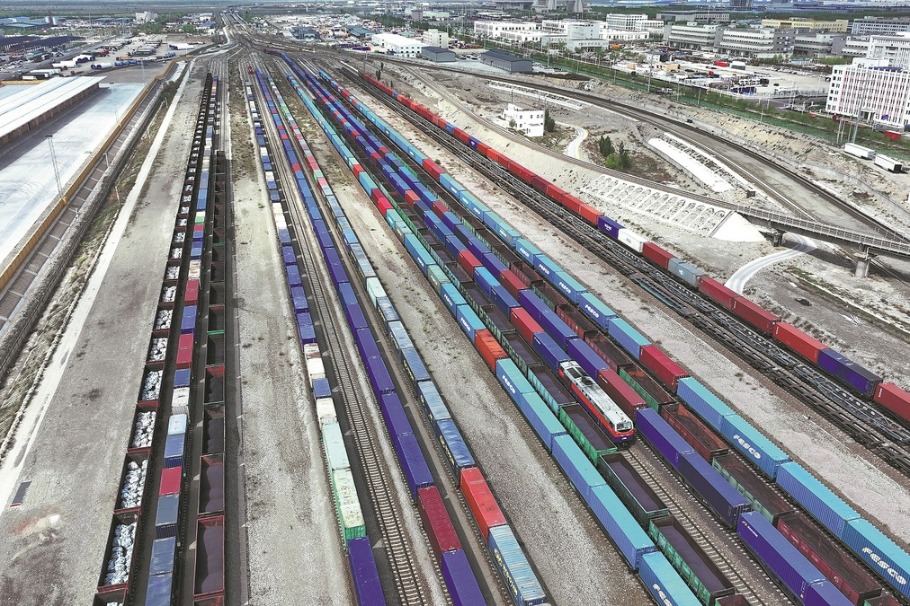China's food system at risk from intl market volatility, warn reports

China's agricultural sector faces threats from surging imports and the intensifying effects of climate change, which could undermine its resilience despite achieving record grain production in 2024, according to two major reports released in Beijing on Monday.
The findings were unveiled in the China Agricultural Sector Development Report 2025 and the 2025 Global Food Policy Report, presented jointly by the Chinese Academy of Agricultural Sciences (CAAS) and the International Food Policy Research Institute (IFPRI).
Ye Yujiang, vice-president of CAAS, said the reports highlight growing vulnerabilities within the country's food system as it becomes more exposed to international market volatility.
China's grain output surpassed 700 million metric tons for the first time last year. However, its reliance on agricultural imports has ballooned, growing from $28.65 billion in 2005 to $215.16 billion in 2024, seeing an average annual increase of 11.2 percent.
While imports of agricultural products effectively supplement domestic supply and surging consumption, weak competitiveness means that when cheaper foreign products flood the market, domestic producers are hit hard, Ye said.
The reports warn that with a strong link between domestic and international prices for most products besides rice and pork, a 20 percent drop in global prices could trigger a dramatic rise in imports.
China's corn imports would increase by nearly 15 million tons and beef by 1.43 million tons, pushing domestic prices below production costs and severely affecting local farmers. The soybean industry, already operating at a loss, would see its situation worsen.
To counter the challenge, the reports proposed a differentiated management strategy for imports. Staple grains like rice, wheat and corn are recommended prioritizing self-sufficiency. For soybeans, it calls for boosting domestic output while diversifying import channels. It also suggests focusing on innovation to create different domestic beef products from imports.
Moreover, the reports found that rising temperatures and changing rainfall patterns are poised to disrupt the entire food supply chain, leading to the overall decline of grain output. According to simulations, a 1 C increase in temperature would reduce the total effective supply of the three main staple grains by 15 million tons.
Increased precipitation, while seemingly beneficial, was found to have a severe negative impact on rice production and to exacerbate post-harvest losses for corn, largely offsetting any gains during the growing season, according to the reports.
The reports also explored enhancing agricultural resilience through dietary changes. Shifting consumer diets toward recommendations from sources like the EAT-Lancet and Mediterranean diets could significantly reduce pressure on domestic supply and cut agricultural greenhouse gas emissions.
A simulation showed that adopting a comprehensive, healthier dietary plan could reduce China's agricultural emissions by 15.57 percent by 2060 compared to the current trajectory. Such a shift would simultaneously boost the country's self-sufficiency rates and promote sustainable development, the reports added.
- China's food system at risk from intl market volatility, warn reports
- Shanghai's iconic landmarks commemorate World Blood Donor Day
- Campaign launched to help public avoid online fraud
- Beijing-Dushanbe direct flight launched
- Irish symposium celebrates Yeats 160th anniversary in Shanghai
- China sees steady drop in unemployment rate





































